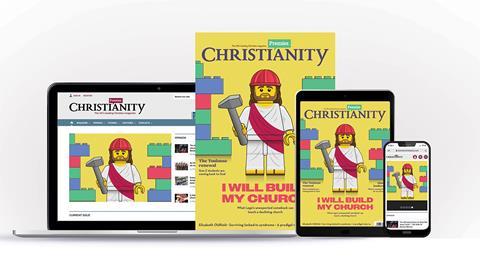If you believed everything you read in the papers, this could be the final piece published on this site. 'Christianity under attack,' screamed the front page of Saturday's Daily Mail after two separate court rulings last week.
On the same day that the National Secular Society won a ruling that local councils had no statutory powers to pray before council meetings, Peter and Hazelmary Bull lost their appeal against a fine imposed on them for refusing to allow a gay couple to occupy a double room in their bed and breakfast.
Rather than focusing on these individual decisions, I'm interested in the discussion which surrounded them about the place of the Church in wider society. Despite what some commentators would have you believe, this isn't a watershed moment where the walls of Christendom will come crashing down; we're far past that.
These two rulings do not mark a sudden shift in policy or approach, instead they typify the decline of Christendom in this country over the last 50 years. The onset of multiculturalism and post-modernity mean that one state-sponsored religion in the UK would not only be impractical, but divisive; and, as passionate as we may be about our faith, are we comfortable with it becoming something that oppresses and alienates? (The word 'becoming' is used loosely here; it would be remiss to assume Christianity has never played this role historically.)
Perhaps we need to ask ourselves a couple of questions. Firstly, what difference does this make? Does the lack of prayers before a council meeting have a profound effect on the way your faith is realised? Does asking ourselves to be more tolerant of the sexual preferences of others mean we are abandoning our core beliefs? I can't answer these questions for you, but rather than immediately going on the defensive, we should be looking at this positively.
A quick history lesson. The early Church was the most dynamic the Church has ever been; it grew at rates unseen in Church history, and was more radical in its expressions of love and community than much of its modern counterparts. It did this while under fierce persecution, with its members abandoned by their families, cast as heretics by religious leaders, and murdered by the state. History lesson over.
Tony Campolo once said that mixing the Church and state was like mixing ice cream and horse manure; it didn't make a lot of difference to the manure, but it made one heck of a difference to the ice cream. The fourth century AD saw the Church crawl into bed with the ruling empire. It also saw it lose its vigour. It ceased to be different or distinct.
While the Church in this country is state-sponsored, it (perhaps subconsciously) adheres to a set of norms subscribed to by those outside of the Church. It waters down its content, compromises on what's important, and loses the ability to say the tough things. I'm not sure I want to be part of a Church like that.
I want to be part of a Church that says what needs to be said, that challenges injustice, that stands up for the weak, the poor, the marginalised; that challenges authority and unchecked power.
Giles Fraser tweeted last week that 'Being chaplains to the state diminishes and weakens our mission.' Jesus spent his time with those at the bottom rather than cosying up to those at the top. Perhaps rather than mourning the death of an institution, we should be celebrating an opportunity to change the world all over again.



























